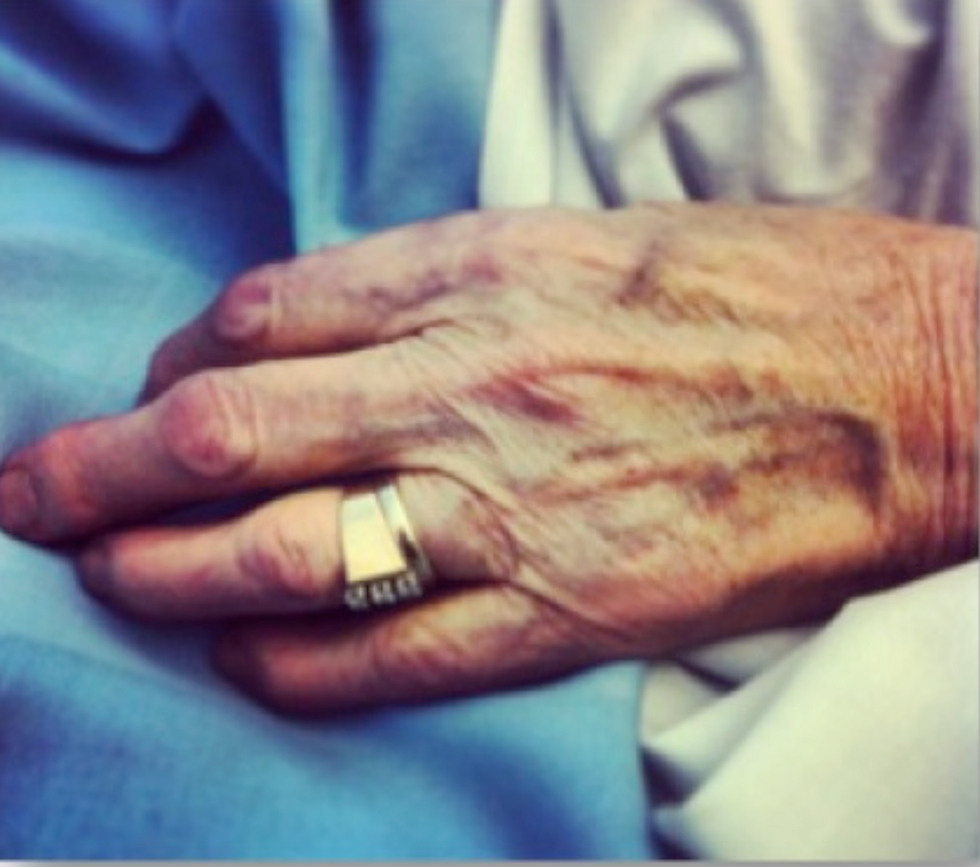I Don’t Do Disability: A Commentary
- Sue Robins

- Nov 18, 2024
- 4 min read

I’ve read all the memoirs written by moms who have children with Down syndrome (including obviously my own) and I can report that Adelle Purdham’s I Don’t Do Disability: And Other Lies I’ve Told Myself, wins the award for the most creative approach to motherhood memoir writing.
Full disclosure: I have met Adelle, so this is not a book review. It is instead a commentary of my thoughts as I read her newly released book.
Memoirs tend to be chronological. I Don’t Do Disability flies in the face of that convention by sliding around in time in each chapter. It has a time travel feel, as we jump from meeting her husband, to having babies, to the early pandemic, to present day. It is a broader book about Adelle’s entire life, not just her experience as her daughter Elyse's mom. She sprinkles in important content from disability advocates like Gregory Mansfield and Amanda Leduc about issues like person-first language (or not).
There is overlap in my own motherhood experience with Adelle’s, although my son is now an adult, and her daughter is approaching her teenage years. We seem to have had the same social worker train us in peer support (chronic grief is a concept I won’t soon forget). We’ve been to World Down Syndrome Congresses and have been struck that the best learning came from people with Down syndrome themselves, not from the so-called professionals.
I appreciated Adelle’s descriptions of her conversations with adults who have Down syndrome. (Her comfort with older disabled people was evident when she met and chatted with my own son Aaron). She speaks honestly about her own internalized ableism, and how she planned to save all the ‘poor babies with Down syndrome’ after she receives her own prenatal diagnosis.
There are facts scattered in the book that I didn’t know, like the tidbit that India has more people with Down syndrome than anywhere else in the world and that only 20 percent of fetuses with Down syndrome reach full term. It makes me grateful for my youngest son’s rare existence. The rarity of being born with Down syndrome is a recurring theme in the book, as are loons and mushrooms and trees.(I can’t properly explain Adelle’s charming metaphors; you’ll just have to read the book yourself).
I wasn’t surprised when I read Adelle’s bio and discovered that she teaches creative writing. This book is more than a simple documentation of becoming a ‘parent disability advocate.’ It does not trod along a timeline, and Adelle is skilled at including tiny details that make a description come alive.
“Soft sunlight pooled on my arm,” she says.
The author speaks honestly about her experiences she had meeting people with Down syndrome when she was growing up. I recognize I had never met anybody with Down syndrome before I met my own son when he was placed on my belly after he was born. This is because I’m older than Adelle, and institutionalization and fully segregated schooling for people with Down syndrome was the horrible reality in the 1970’s. I hope we have progressed as a society with each generation, but some days I feel pessimistic. Progress sometimes moves backwards too.
Adelle shares uncensored stories about the effect of the pandemic, the bumpy parts of her marriage, the struggle to be the caregiver. I won’t call her writing raw (I dislike it when people call my writing raw) because her words are obviously thoughtfully chosen, not vomited out as the word raw implies. But her writing strikes me as vulnerable, and as a mom who has an older child, I feel protective of her, as society gets harsher for our loved ones as they age. The self-reflection Adelle obviously had to do to write this book will serve her well in the future.
The book offers descriptions of the dark history of the treatment of people with Down syndrome. I want to turn away. Even two decades in, it pains me to imagine Aaron abandoned and mistreated. There might be parts you skip in I Don’t Do Disability and that’s okay too.
There are tender bits, like the quote from the mom who said, “I didn’t have children not to love them for their whole lives.” This tenderness is a welcome salve for readers who are new to the Down syndrome world. They need stories like Adelle’s that give a glimpse into the future, that tell both the joyous and hard truths that make up our complex lives.
The first book I read about Down syndrome after Aaron was born was Martha Beck’s Expecting Adam. It too was a book touched by creativity and even a bit of magic. I’ve never forgotten it, as it Beck’s words served as a comfort to me for many years.
After reading I Don’t Do Disability, I will be recommending it when I meet new families. Support groups should buy up Adelle’s book and add it to their new parent packages. The Down syndrome is not front and centre in the book, but to tell the truth, that extra 47th chromosome, while always present, is only one piece of the fabric of my life. There’s marriage and other children and the struggle to be a good mother and work too. Adelle covers all these bases to provide a complete picture of a rich and full family life.
I Don’t Do Disability is a keeper and deserves a coveted spot on your bookshelf, whether you have a loved one with Down syndrome or not. Brava Adelle. Thank you for writing this enchanting book.




Comments